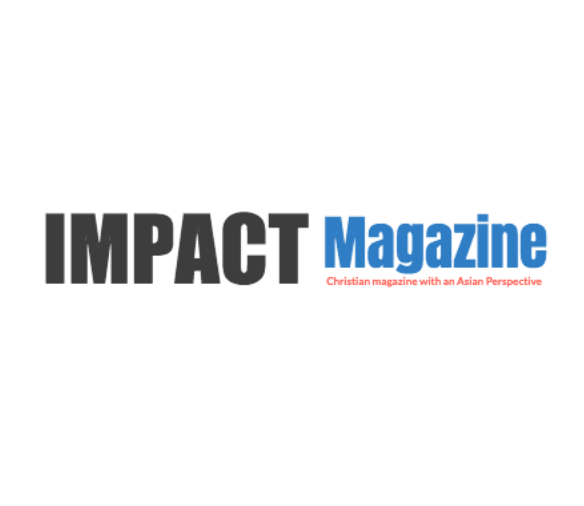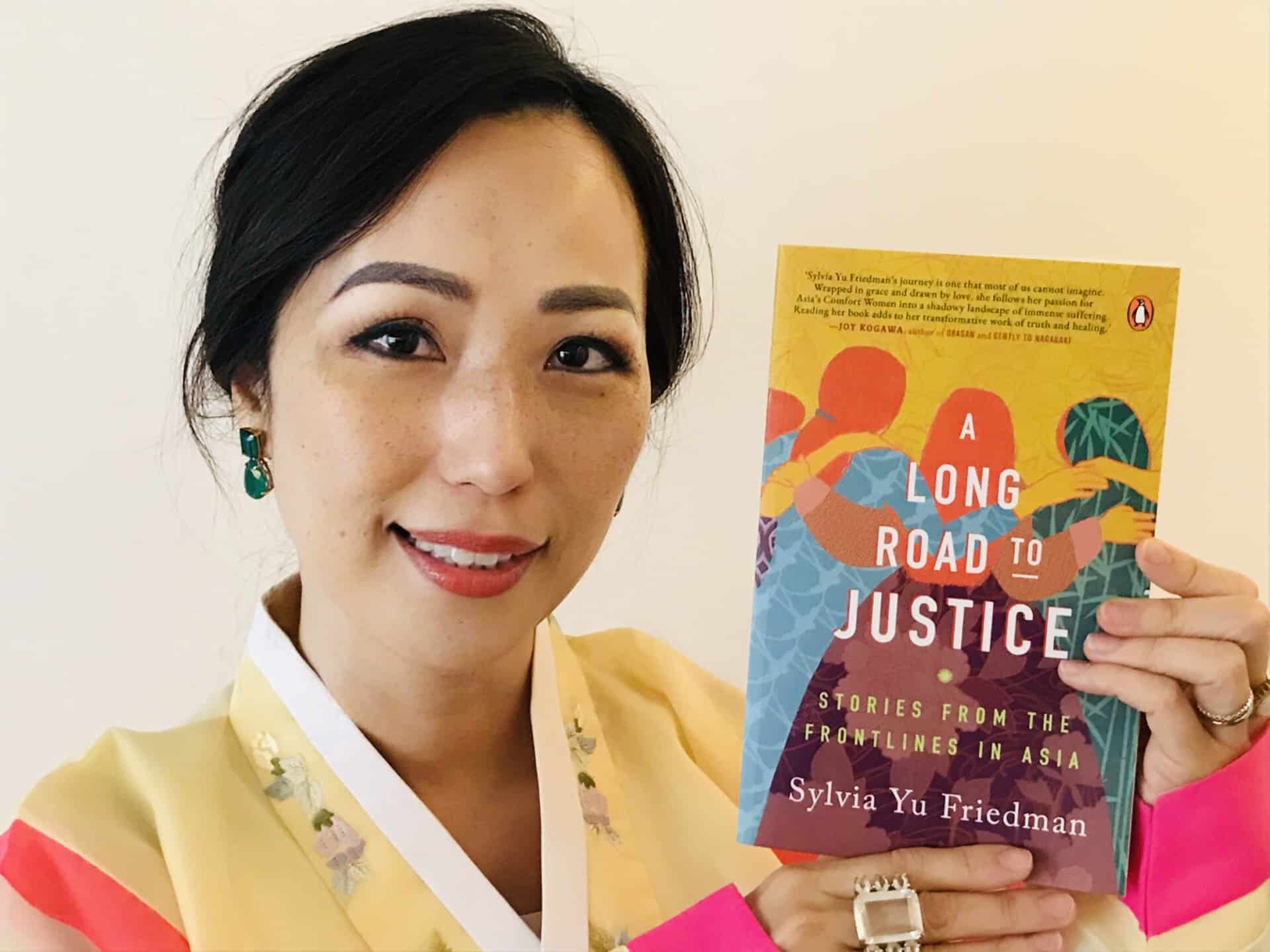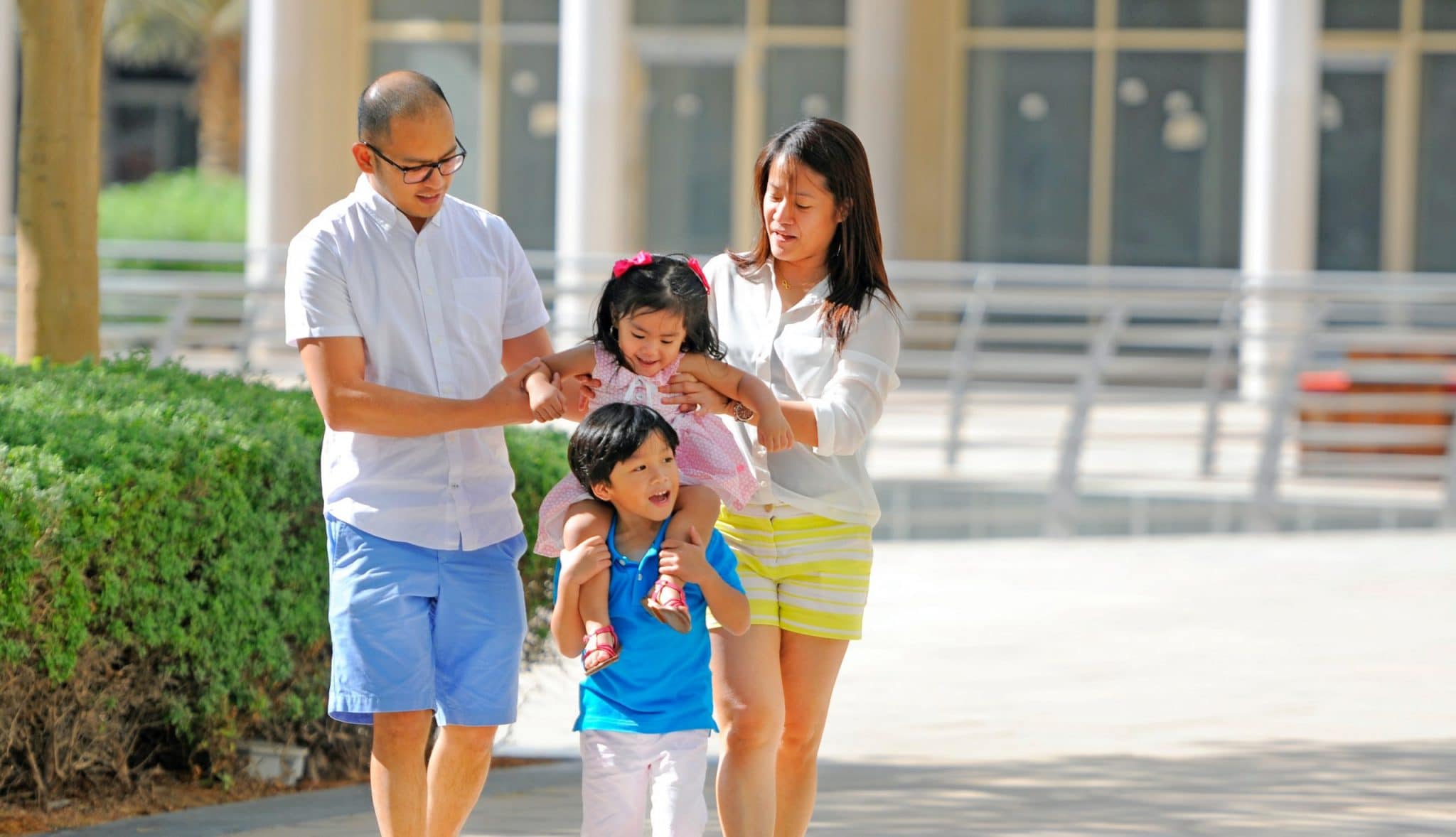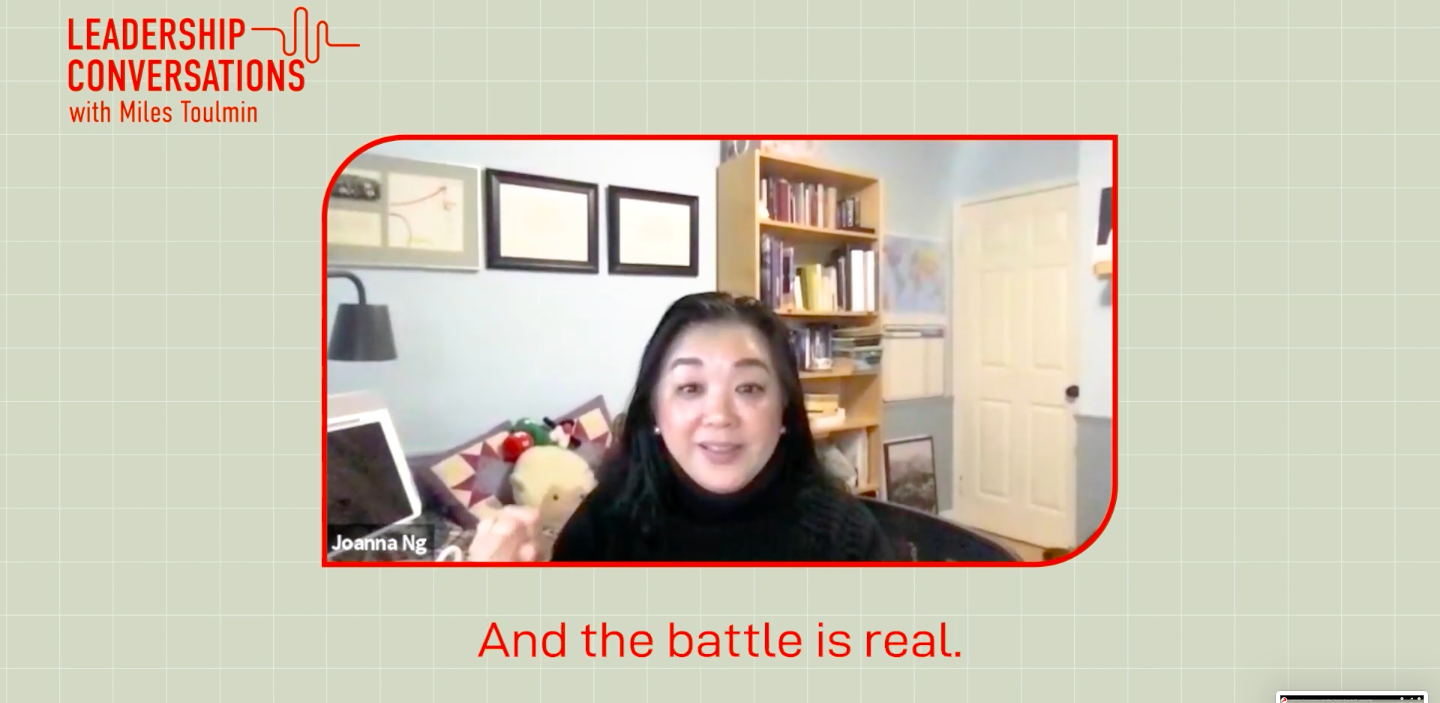From public servant to God’s servant: An interview with Hong Kong’s Stephen Lam
IMPACT Magazine // May 5, 2019, 12:00 pm
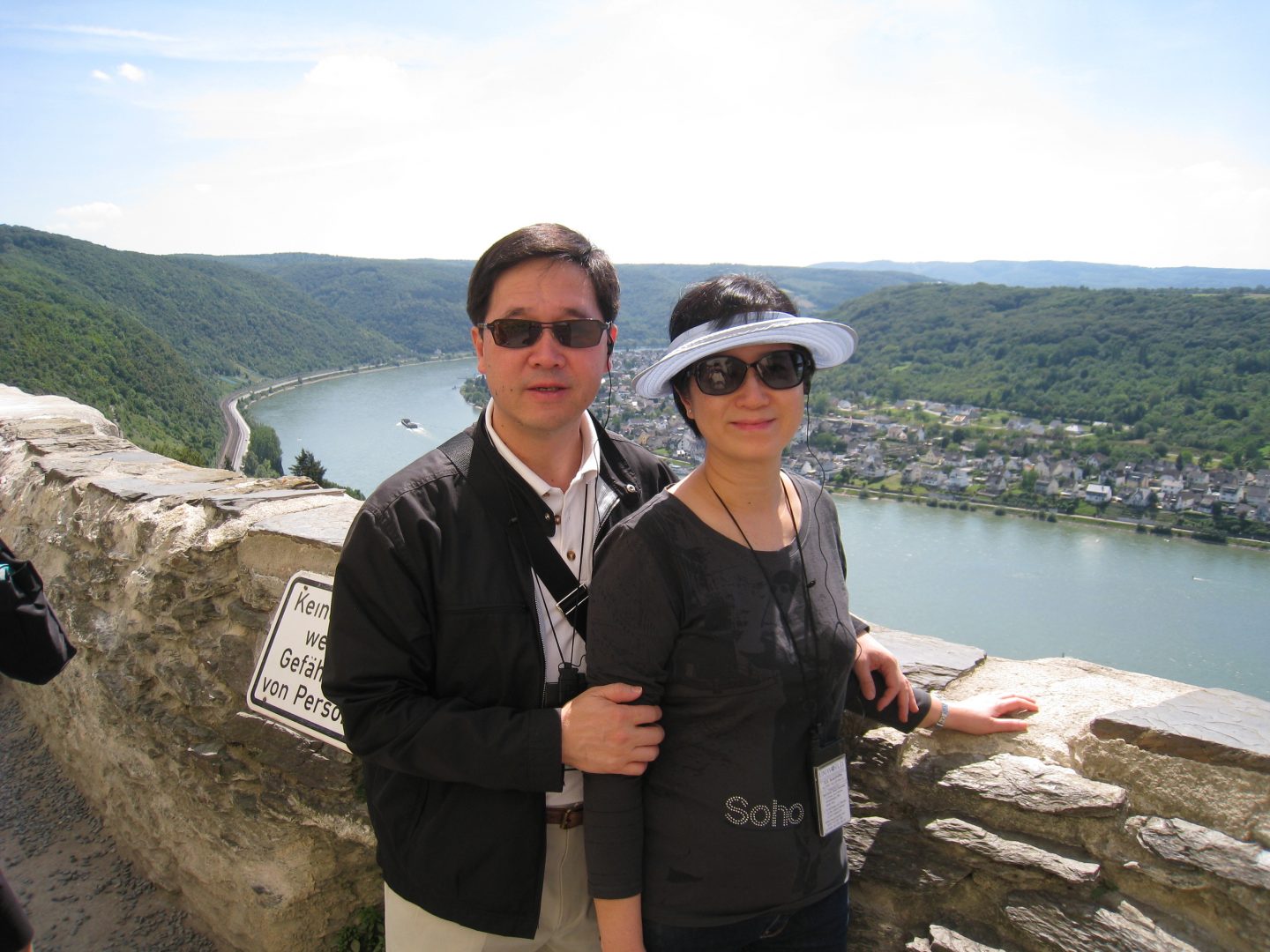
Stephen Lam with his wife, Florence, on vacation at the River Rhine in August 2011 where Lam sought the Lord's direction on his next steps after public service. All photos courtesy of Stephen Lam.
When Stephen Lam travels on the Mass Transit Railway (MTR) in Hong Kong to his preaching engagements, people come up to greet him.
A well-known public figure, Lam served for over 30 years in public service, with the privilege of orchestrating the Hong Kong Handover Ceremony in 1997, treading the fine line between politics and faith.
To him, God is both the Master of histories of nations, as well as of his personal life.
IMPACT: You were born and brought up in Hong Kong. Could you tell us more about your family? Where do you and your family call home these days?
Lam: I was born in Hong Kong, I grew up in Stanley, and very near to a prison. We children swam, climbed mountains and enjoyed many rural adventures. Our father worked in the prison department as a clerk, the head of a lower-middle income household with six children.
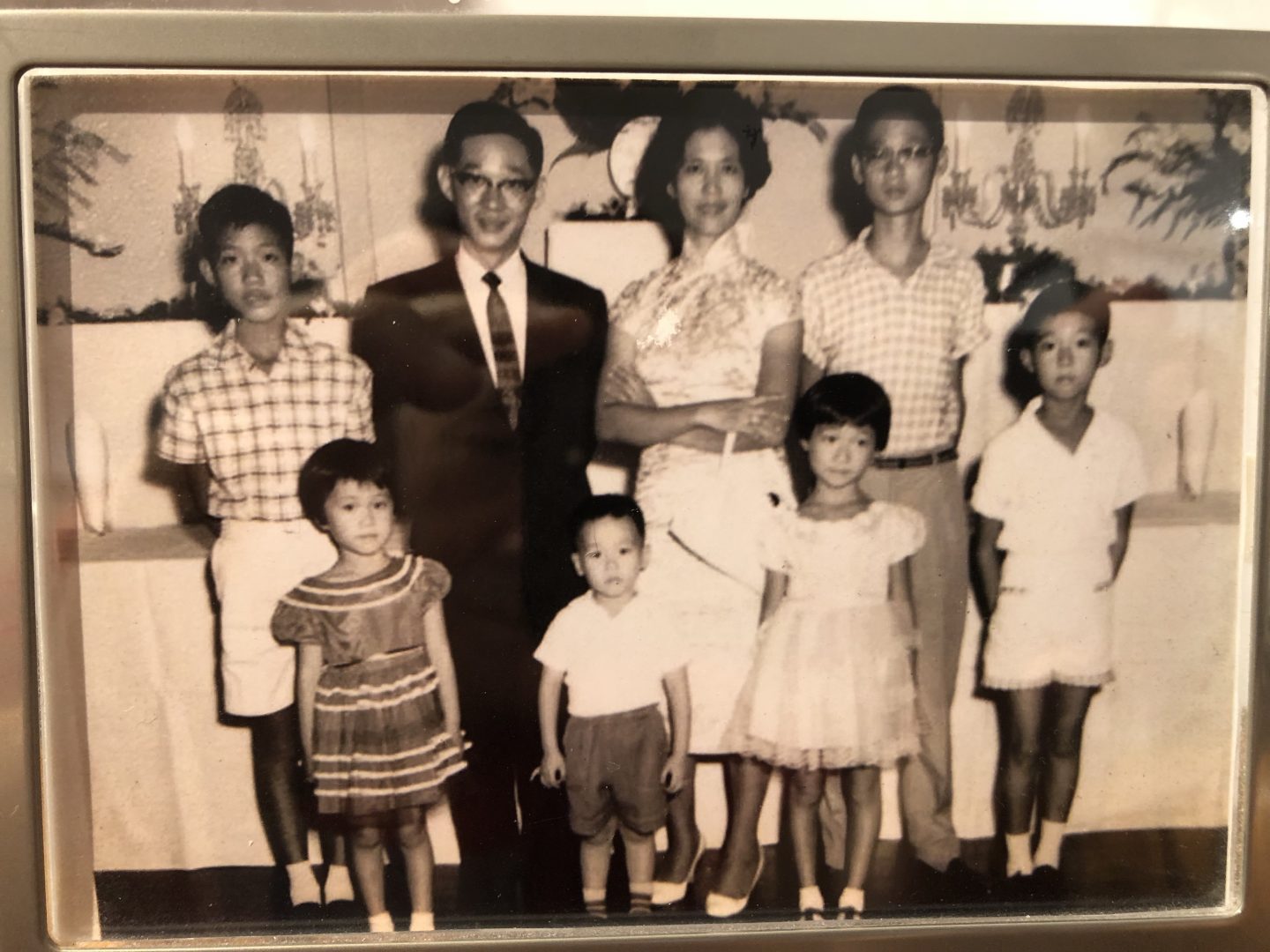
Stephen (the youngest child in the middle) was the youngest of six children.
I have studied and worked in the UK for a few years. I also represented the Hong Kong Economic and Trade Office in Canada. But Hong Kong has always been home to us and our elder daughter with her two children.
Nothing beats the blessing of being with our grandchildren and seeing them grow in the knowledge of the Lord, while we retire, or rather, slow down in life. My younger daughter lives in the UK.
Could you tell us about your Christian faith in the earlier years?
In fact all brothers in the family attended Wah Yan College, an elite Catholic school.
I humbly stayed on in the job God had called and prepared me for.
The two sisters went to a convent school. My mother used to take us to the Catholic church near our home.
We were well brought up in the Catholic beliefs, respecting the priests as faithful servants of God.
Though I was an altar boy in church, I did not really understand the Gospel until I was studying at the University of Hong Kong.
Friends from the Christian Association finally resolved my puzzle of why Jesus had to die. I then became a Christian.
Has your career path been smooth all the way?
When I graduated in 1978 from the Social Science faculty, I applied for 10 jobs, five in the private sector and five in the public sector. I was offered Administrative Officer, a position that usually promises a scholarship to study law and politics at Oxford University. So, I went to Oxford in 1979. I pursued part-time legal studies.
Indeed, my dream came true in 1983 when I graduated from the University of London Law School. In 1985-86, I qualified as both English Barrister and Hong Kong Barrister.
Originally, my plan was to move into private practice. But there were too many problems to resolve before the anticipated historical transfer of sovereignty from Britain to China in 1997.
Knowing in my heart that I would serve in the public service for just a finite term, according to God’s timing, I humbly stayed on in the job God had called and prepared me for.
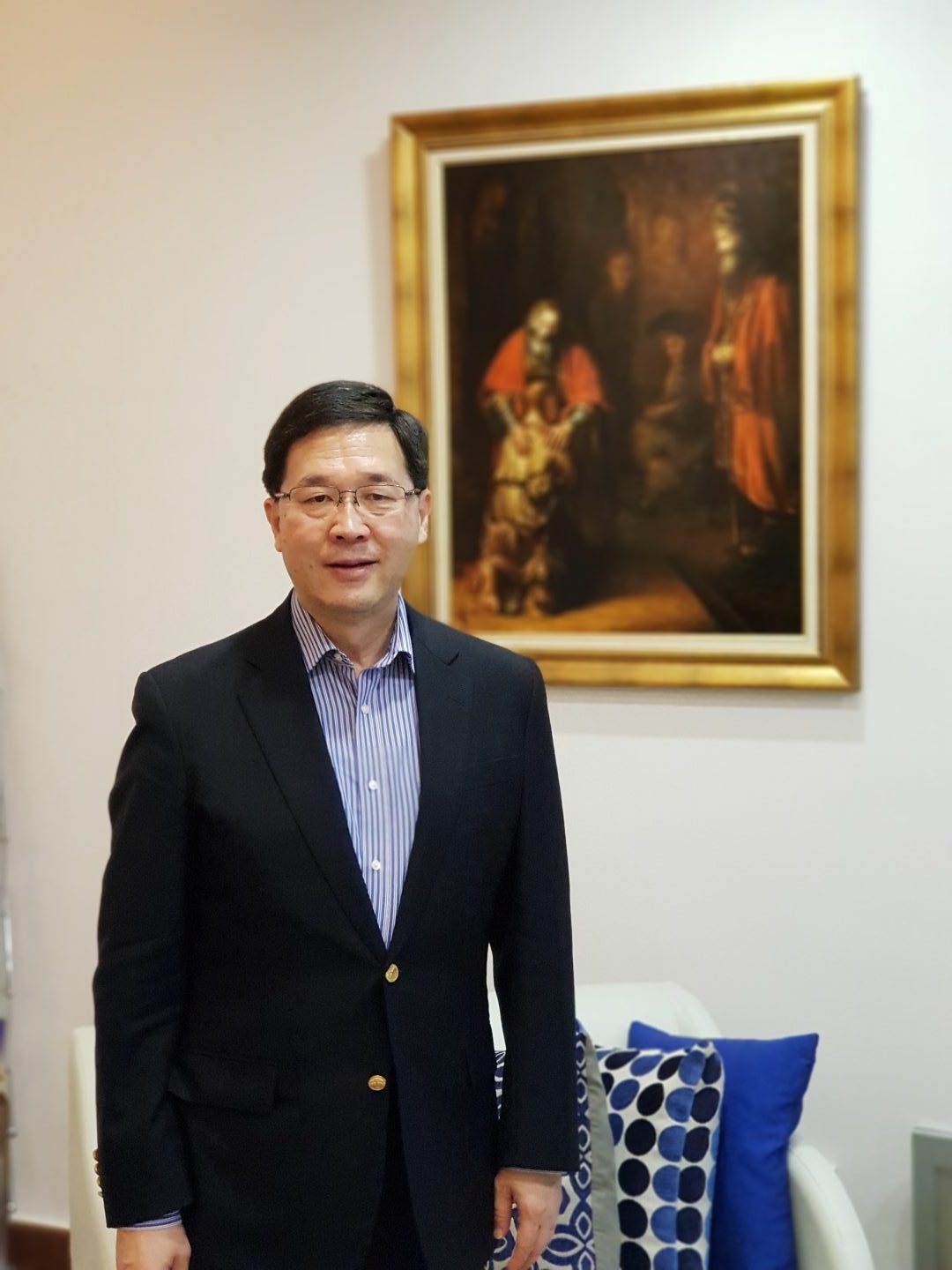
Lam’s career as a public servant was anchored on Micah 6:8: “He has told you, O man, what is good; and what does the LORD require of you but to do justice, and to love kindness, and to walk humbly with your God?”
I was Administrative Assistant to the Chief Secretary from 1989 to 1991, Deputy Secretary for Constitutional Affairs from 1994 to 1996, Director of the Hong Kong Handover Ceremony Coordination Office from 1996 to 1997.
After the transfer of sovereignty of Hong Kong to the People’s Republic of China, I was the Director of Administration and Development in the Hong Kong Department of Justice. From July 2002 to September 2011, I was Secretary for Constitutional and Mainland Affairs.
I was appointed then as the Chief Secretary for Administration. This position was equivalent to deputy head of government. I had nine months to serve. Retirement was catching up too.
What would you say were the most important lessons you learned as a public servant?
In my conviction, I will sum up as following:
1. All positions of influence and power are from the Lord.
Hence, one must work faithfully with humility, always trusting God through prayer.
My life and career as a public servant are truly anchored in this Bible verse: “He has told you, O man, what is good; and what does the LORD require of you but to do justice, and to love kindness, and to walk humbly with your God?” (Micah 6:8)
2. A public servant must be able to serve with open ears and open heart. Act not in your own interest, but in the interest of society and conscience, more so, of the country.
Respect views which differ from yours. Listen carefully to your opposition.
In the 1980s and 1990s, when I was in UK and Canada respectively, I learned that all over the world, Christians from various countries with diverse background and systems, who represented a spectrum of views and practices, must strive to work with one another.
3. Seek the prayer partnership of the church leaders.
Preparation for the change of the Constitution-package was crucial for the future of the Hong Kong administration. A weekly prayer-breakfast began among four Christian ministers in 2004.
Respect views which differ from yours. Listen carefully to your opposition.
We also encouraged many churches, pastors and leaders (members too) to show concern for the territory’s needs, through united prayer, like never before.
And God always answered our petitions. We lay low in our strategy but honestly garnered the prayer of the body of Christ behind us. The one-person-two-votes electoral-reform package in 2010 saw a breakthrough of 46 supportive votes out of 60 in the Legislative Council – not just two-thirds majority, but more than three-quarters majority.
Praise be to God and the love of our King.
4. Observe and obey the season for everything.
Public service is not forever. It has its finite term. One serves with specific purposes and roles. As a public figure, expect not just to be loved, but to be opposed as well.
Was the decision to switch paths from public service to theological pursuits a sudden change of direction? What followed a few years down the road?
Definitely not. Florence, my wife, and I started thinking and praying a lot about our future path before my term of office expired in June 30, 2012.
As a public figure, expect not just to be loved, but to be opposed as well.
In August 2011, we took an eight-day River Rhine cruise just to be away, and prayed. Eleven months later, I moved on to read theology at Oxford University, fulfilling my heart’s desire for another season in life.
In 2014, I was invited to serve with Ravi Zacharias’ International Ministry (RZIM). I would give an average of eight to 10 talks per month in Hong Kong or overseas. While in Hong Kong, I preach, teach apologetics and hold evangelistic meetings in churches and para-church organisations.
In 2016 you did a cross-Canada tour called “From Public Servant to God’s Servant”. It was deemed a little controversial. Can you comment on the experience?
It was a 10-12 day evangelistic tour of four main cities in Canada.
While in Toronto, two persons confronted me about the electoral reform. I thanked them for coming forward and respected what they said. But I explained to them that there was no perfect solution (to the reform). I just had to do my best in bringing all parties together, reaching a majority view, which turned out to be in support of the reform proposed.
The tour was purely evangelistic in nature. Seeing people confessing Jesus as their Saviour was very encouraging.
Your High Table speech at Chi Sun College, Hong Kong, four years ago was about leadership principles. Tell us about the key principles which have guided and shaped your leadership style over the years.
They are quite straightforward.
- Daniel: A man that kept the core values and principles of the Lord without any compromise, even endangering his own life.
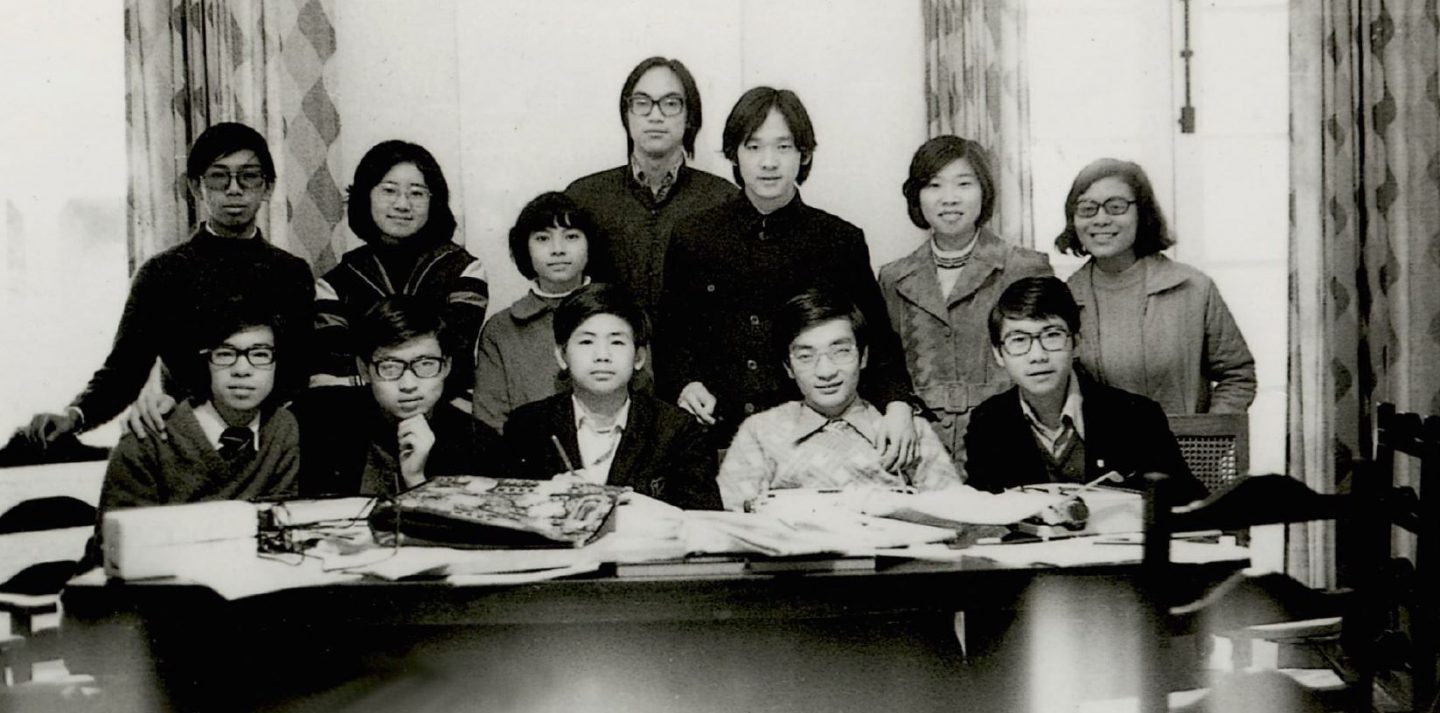
Stephen Lam (second row, third from right) in 1974 as the chairman of the students council.
- Esther: Acted boldly at the Kairos moment in history. Do it now or never! Muster the power of prayer and even fasting!
- Joseph: Fled from temptation (he would rather leave his shirt than his reputation). Sold as slave but turned into a minister, he was convinced that the Lord brought pain and suffering upon him for a purpose, for the good of his own household and nation. The Lord is sovereign.
Finally, how will you lead the rest of your life and what legacy do you wish to leave behind?
I am 62 now. I should be doing what I enjoy most? I always thought we should reflect and see how we can do better in life.
But one thing is for sure – being a grandpa has fewer anxieties. I am often amused by the inquisitiveness of my granddaughters and the ways they can learn from me about God, heaven, believing and trusting in Jesus, knowing God’s Word and His promise.
Once, my granddaughter said: “Grandpa, I don’t want you to die.”
I told her: “Jesus said ‘whoever believes in Me, though he die, yet shall he live, and everyone who lives and believes in Me shall never die.'” (John 11:25-26) I assured her that as a Christian family, we would meet each other in heaven after we leave this world.
Blessing the younger generation is what I desire to do most now!
This interview was first published by IMPACT Magazine and has been reproduced with permission.
We are an independent, non-profit organisation that relies on the generosity of our readers, such as yourself, to continue serving the kingdom. Every dollar donated goes directly back into our editorial coverage.
Would you consider partnering with us in our kingdom work by supporting us financially, either as a one-off donation, or a recurring pledge?
Support Salt&Light